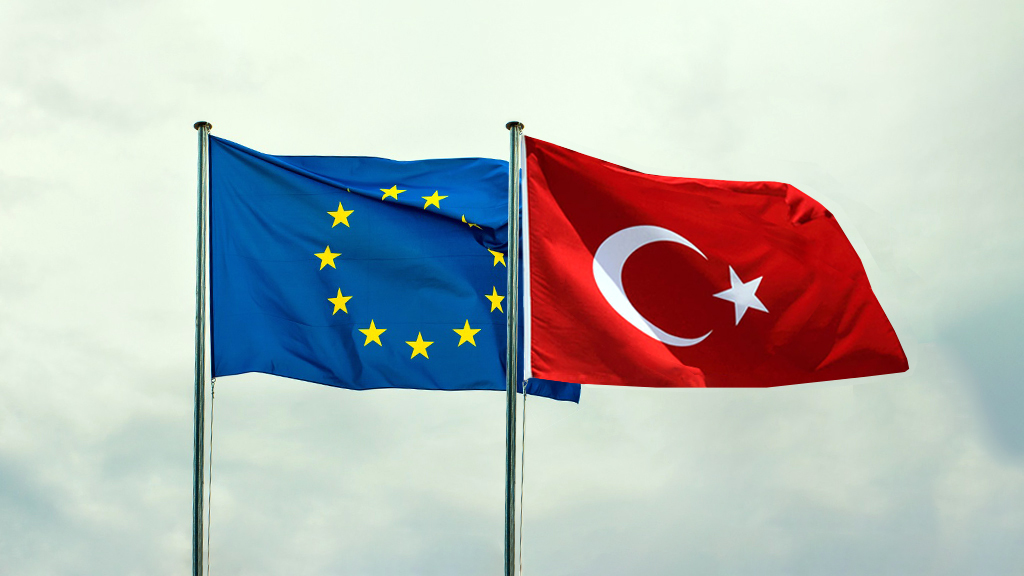Türkiye has intensified its call for urgent reforms to the European Union’s Schengen visa policies, aiming to dismantle barriers that hinder travel, trade, and cultural exchange. This push is not merely about simplifying administrative processes; it represents a critical step toward fostering deeper integration with the EU and advancing Türkiye’s long-standing ambition of full EU membership. Visa liberalization is a cornerstone of Türkiye’s broader strategy to strengthen economic, social, and political ties with Europe, addressing longstanding grievances and building mutual trust. This article delves into the complexities of the Schengen visa issue, explores the historical context of Türkiye-EU relations, examines the socioeconomic implications of visa restrictions, and highlights the potential benefits of reform for both parties.
The Current Schengen Visa Landscape for Turkish Citizens
Under the existing framework, Turkish citizens are required to obtain a Schengen visa to enter any of the 27 Schengen Area countries, which include most EU member states as well as Iceland, Norway, Switzerland, and Liechtenstein. The application process is often described as cumbersome, expensive, and time-consuming, posing significant obstacles for travelers.
Challenges of the Visa Application Process
The Schengen visa application process for Turkish nationals involves multiple steps, including gathering extensive documentation, scheduling appointments at consulates or visa centers, and paying fees that can be prohibitive for some. Applicants must provide proof of financial stability, travel insurance, accommodation details, and a clear purpose for their trip, among other requirements. Processing times can extend to several weeks, and rejections are not uncommon, often due to minor discrepancies or insufficient documentation.
“The bureaucratic hurdles of the Schengen visa process create a sense of exclusion for Turkish citizens, who feel unfairly restricted from accessing Europe despite Türkiye’s deep historical and economic ties with the continent,” notes a Turkish diplomat involved in EU negotiations.
These challenges disproportionately affect certain groups, such as students, small business owners, and young professionals, who may lack the resources or time to navigate the system. The high cost of visa applications, combined with the uncertainty of approval, discourages travel and limits opportunities for cultural and economic exchange.
Economic and Social Impacts of Visa Restrictions
The visa regime has far-reaching consequences beyond individual inconvenience. It stifles tourism, a vital sector for both Türkiye and Schengen countries. In 2024, Türkiye welcomed millions of European tourists, but restrictive visa policies limit reciprocal travel, reducing Turkish tourism to Europe. This imbalance hampers the potential for mutual economic benefits, as tourism supports jobs, local businesses, and cultural exchange.
Business interactions are similarly affected. Turkish entrepreneurs and professionals face delays and costs when attending trade fairs, conferences, or meetings in Europe, weakening economic partnerships. The restrictions also hinder academic collaboration, as Turkish students and researchers encounter barriers to participating in European exchange programs or accessing educational opportunities.
Socially, the visa regime creates a psychological divide, reinforcing perceptions of inequality between Türkiye and the EU. For many Turkish citizens, the stringent requirements feel like a lack of trust, undermining the goodwill necessary for closer integration.
The Historical Context of Türkiye-EU Relations
To fully understand Türkiye’s push for visa reform, it is essential to examine the broader history of its relationship with the European Union. Türkiye’s aspiration to join the EU dates back decades, marked by milestones, setbacks, and evolving dynamics.
Türkiye’s EU Journey: From Association to Accession
Türkiye’s formal relationship with the EU began with the 1963 Ankara Agreement, which established an association framework and set the stage for eventual membership. In 1995, the EU-Türkiye Customs Union was implemented, integrating Türkiye into the European market and boosting trade. Türkiye applied for full EU membership in 1987 and was granted candidate status in 1999, with accession negotiations officially opening in 2005.
However, progress has been slow. Negotiations have been hampered by political, legal, and cultural challenges, including disputes over Cyprus, concerns about human rights and rule of law in Türkiye, and varying levels of commitment among EU member states. As of 2025, only a fraction of the 35 negotiation chapters required for accession have been opened, and none have been closed in recent years.
Visa Liberalization as a Recurring Issue
Visa liberalization has been a recurring topic in Türkiye-EU discussions since the early 2000s. In 2013, the EU and Türkiye signed a Visa Liberalization Dialogue, accompanied by a Readmission Agreement, which outlined a roadmap for visa-free travel. Türkiye was tasked with meeting 72 benchmarks, including reforms in areas such as migration management, document security, and judicial cooperation. While Türkiye has made significant progress on many of these criteria, the EU has cited outstanding issues, particularly related to anti-terrorism legislation and judicial independence, as reasons for delaying visa-free travel.
This stalemate has fueled frustration in Türkiye, where many view the EU’s reluctance as a lack of political will rather than a reflection of technical shortcomings. Turkish officials argue that the visa issue is a litmus test for the EU’s sincerity in pursuing closer ties.
The Case for Schengen Visa Reform
Türkiye’s appeal for Schengen visa reform is grounded in both practical and symbolic arguments. Easing visa restrictions would yield tangible benefits for both sides while signaling a commitment to partnership.
Economic Benefits of Visa Liberalization
Visa liberalization would unlock significant economic potential. Increased travel by Turkish citizens would boost tourism revenue in Schengen countries, particularly in popular destinations like Greece, Italy, and Spain. A 2018 study by the European Stability Initiative estimated that visa-free travel for Turkish nationals could generate an additional €1.5 billion annually in tourism revenue for the EU.
Business ties would also strengthen. Easier access to Europe would enable Turkish companies to expand their presence, attend trade events, and forge partnerships more efficiently. This aligns with the objectives of the EU-Türkiye Customs Union, which seeks to maximize trade. Conversely, European firms would benefit from a more dynamic Turkish market, as increased people-to-people contacts foster trust and collaboration.
Social and Cultural Advantages
Visa reform would enhance cultural exchange, a vital component of EU-Türkiye relations. Türkiye’s rich history and diverse culture have long been intertwined with Europe’s, from the Ottoman Empire’s interactions with European powers to modern-day collaborations in art, music, and education. Facilitating travel would allow more Turkish citizens to engage with European culture firsthand, while Europeans would gain greater exposure to Türkiye’s heritage.
Educational exchanges would also flourish. Programs like Erasmus+ have already connected Turkish and European students, but visa barriers limit participation. Liberalization would enable more Turkish students to study abroad, fostering cross-cultural understanding and building a generation of professionals with shared values.
Political and Strategic Implications
From a political perspective, visa liberalization would signal the EU’s commitment to Türkiye’s integration, rebuilding trust eroded by years of stalled accession talks. It would also counter narratives of exclusion, strengthening pro-EU sentiment in Türkiye, where public support for membership has waned in recent years.
Strategically, closer ties with Türkiye enhance the EU’s influence in a geopolitically critical region. Türkiye’s location at the crossroads of Europe, Asia, and the Middle East makes it a vital partner in addressing issues like migration, energy security, and counterterrorism. Visa reform could pave the way for deeper cooperation in these areas, aligning with the EU’s broader foreign policy goals.
Challenges and Obstacles to Reform
Despite the compelling case for visa liberalization, several challenges complicate progress. These include political tensions, differing priorities, and logistical concerns.
EU Concerns and Conditions
The EU has consistently raised concerns about Türkiye’s domestic policies, particularly regarding human rights, press freedom, and judicial independence. These issues have been cited as barriers to both visa liberalization and accession progress. Some EU member states, wary of migration flows, also express caution about granting visa-free access to a country of Türkiye’s size and geopolitical complexity.
The 72 benchmarks of the Visa Liberalization Roadmap remain a sticking point. While Türkiye has fulfilled most requirements, the EU insists on further reforms, particularly in aligning Türkiye’s anti-terrorism laws with European standards. Turkish officials argue that these laws are necessary for national security, given the country’s exposure to regional instability, creating a delicate balancing act.
Political Dynamics within the EU
The EU’s decision-making process, which requires consensus among member states, adds another layer of complexity. Countries like France and Austria have historically been skeptical of Türkiye’s EU membership, influencing the pace of reforms. Meanwhile, nations with strong economic ties to Türkiye, such as Germany and Spain, advocate for progress but face domestic pressures that limit their influence.
Public Opinion and Perceptions
Public opinion in both Türkiye and the EU poses challenges. In Türkiye, frustration with the EU’s perceived double standards has led to declining support for membership, with polls showing only 30% of Turks favoring EU integration in 2024. In Europe, misconceptions about Türkiye’s culture and politics fuel resistance to closer ties, despite the country’s secular constitution and modernizing reforms.
Pathways to Progress
Overcoming these challenges requires a pragmatic, collaborative approach. Both sides must prioritize dialogue, compromise, and incremental steps toward reform.
Short-Term Measures
In the immediate term, the EU could streamline the Schengen visa process for Turkish citizens without fully eliminating the requirement. Measures such as reducing fees, expediting processing times, and expanding visa centers in Türkiye would alleviate burdens while maintaining oversight. Pilot programs for specific groups, such as students or business travelers, could test the feasibility of broader liberalization.
Long-Term Vision
The ultimate goal of visa-free travel requires sustained progress on the Visa Liberalization Roadmap. Türkiye must continue addressing the EU’s concerns, particularly in areas like judicial reform, while the EU should provide clearer timelines and technical assistance to facilitate compliance. Regular high-level summits, like those held in 2024, can maintain momentum and ensure accountability.
Building Mutual Trust
Trust is the foundation of any breakthrough. The EU can demonstrate goodwill by acknowledging Türkiye’s contributions, such as its role in managing migration flows under the 2016 EU-Türkiye Statement. Türkiye, in turn, can reinforce its commitment to EU values through transparent reforms. Public diplomacy campaigns, highlighting shared history and mutual benefits, can counter negative perceptions on both sides.
The Broader Implications of Visa Reform
Visa liberalization is more than a technical issue; it is a symbol of the EU-Türkiye relationship’s potential. Its resolution would have ripple effects across multiple domains.
Regional Stability and Cooperation
A stronger EU-Türkiye partnership would contribute to stability in a volatile region. Türkiye’s role as a NATO ally and mediator in conflicts, such as those in Ukraine and the Middle East, underscores its strategic importance. Visa reform would deepen collaboration on shared challenges, from climate change to security, enhancing regional prosperity.
A Model for Integration
Successful visa liberalization could serve as a model for other countries seeking closer ties with the EU, such as those in the Western Balkans or Eastern Partnership. It would demonstrate that integration is achievable through dialogue and reform, reinforcing the EU’s soft power.
People-to-People Connections
At its core, visa reform is about people. Easier travel would enable families to reunite, students to learn, and entrepreneurs to innovate. These interactions would weave a tapestry of shared experiences, breaking down stereotypes and fostering a sense of common destiny.
Conclusion
Türkiye’s call for Schengen visa reform is a pivotal moment in its relationship with the European Union. By addressing the practical and symbolic dimensions of visa liberalization, both sides can unlock new opportunities for economic growth, cultural exchange, and political cooperation. While challenges remain, a commitment to dialogue and incremental progress can pave the way for meaningful change. For Turkish citizens, easier access to the Schengen Area would be a tangible sign of progress, reinforcing their connection to Europe. For the EU, it would reaffirm its commitment to partnership and inclusivity. As discussions continue, the stakes are high—not only for Türkiye and the EU but for the broader vision of a united, prosperous, and cooperative region.























0 Comments